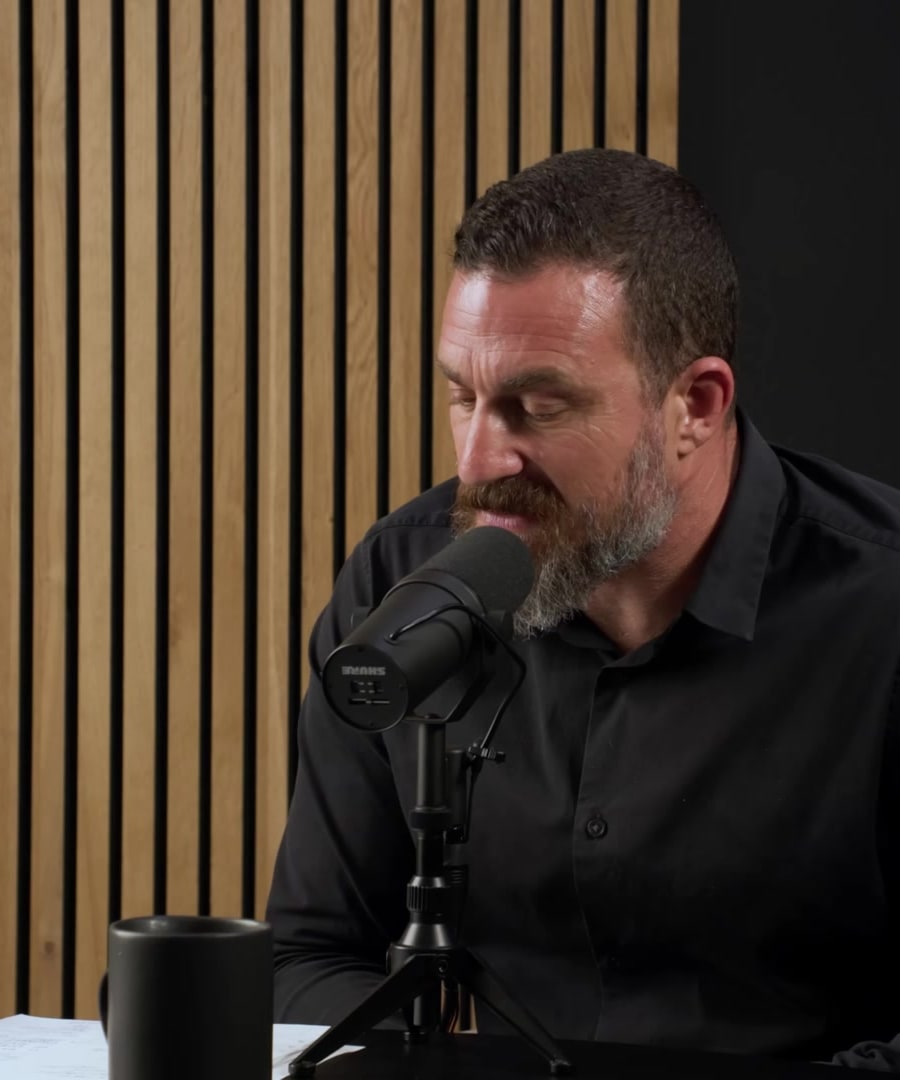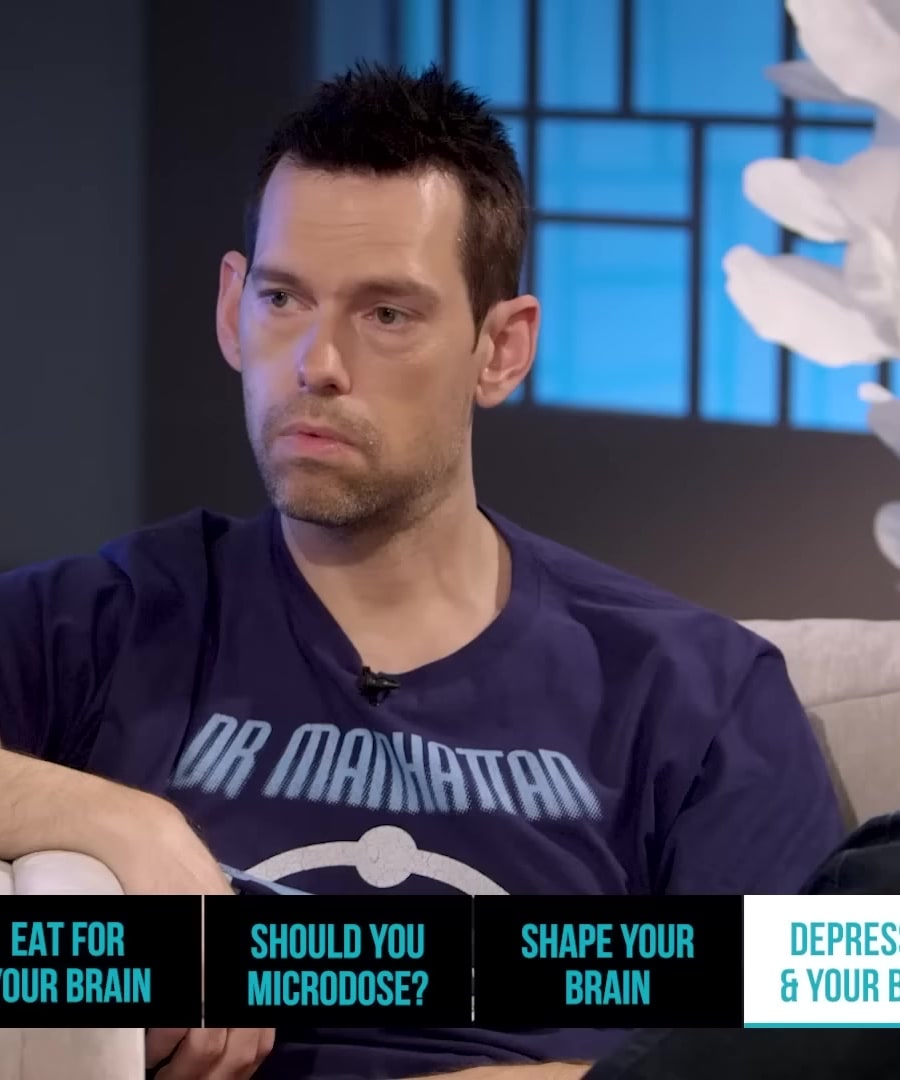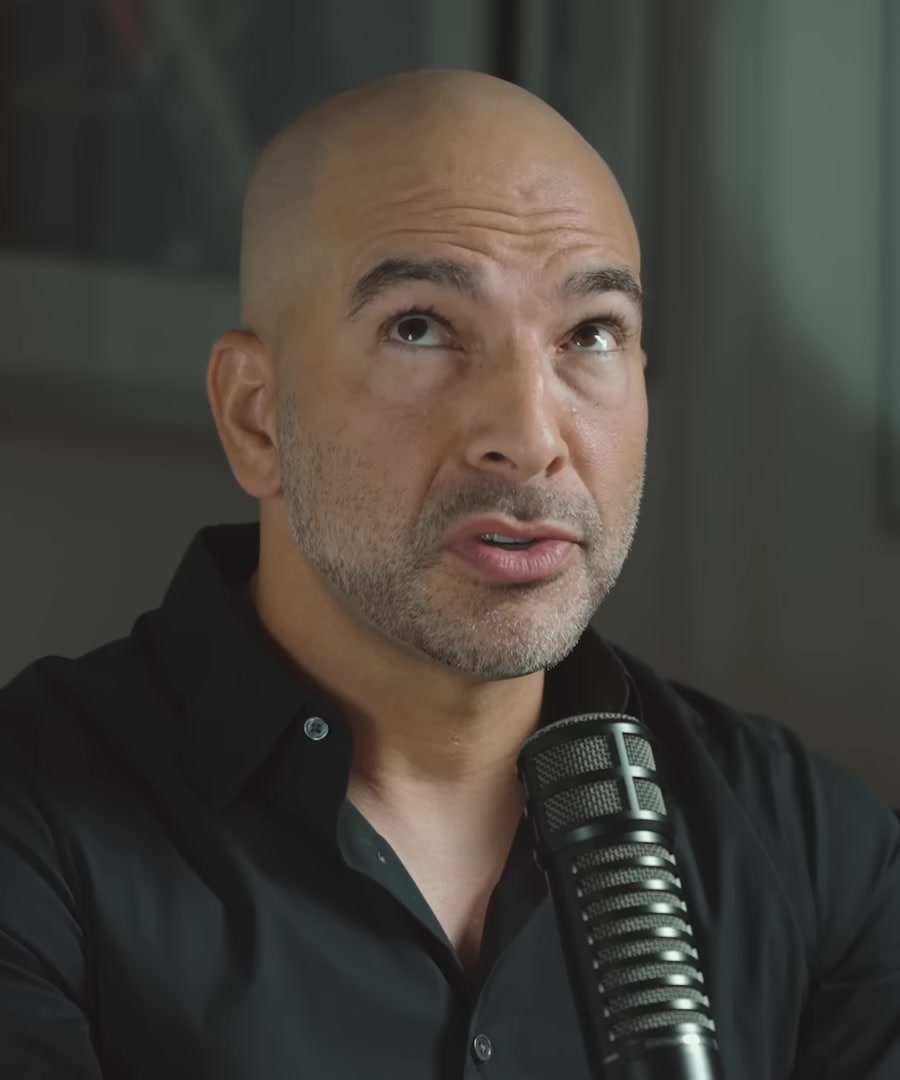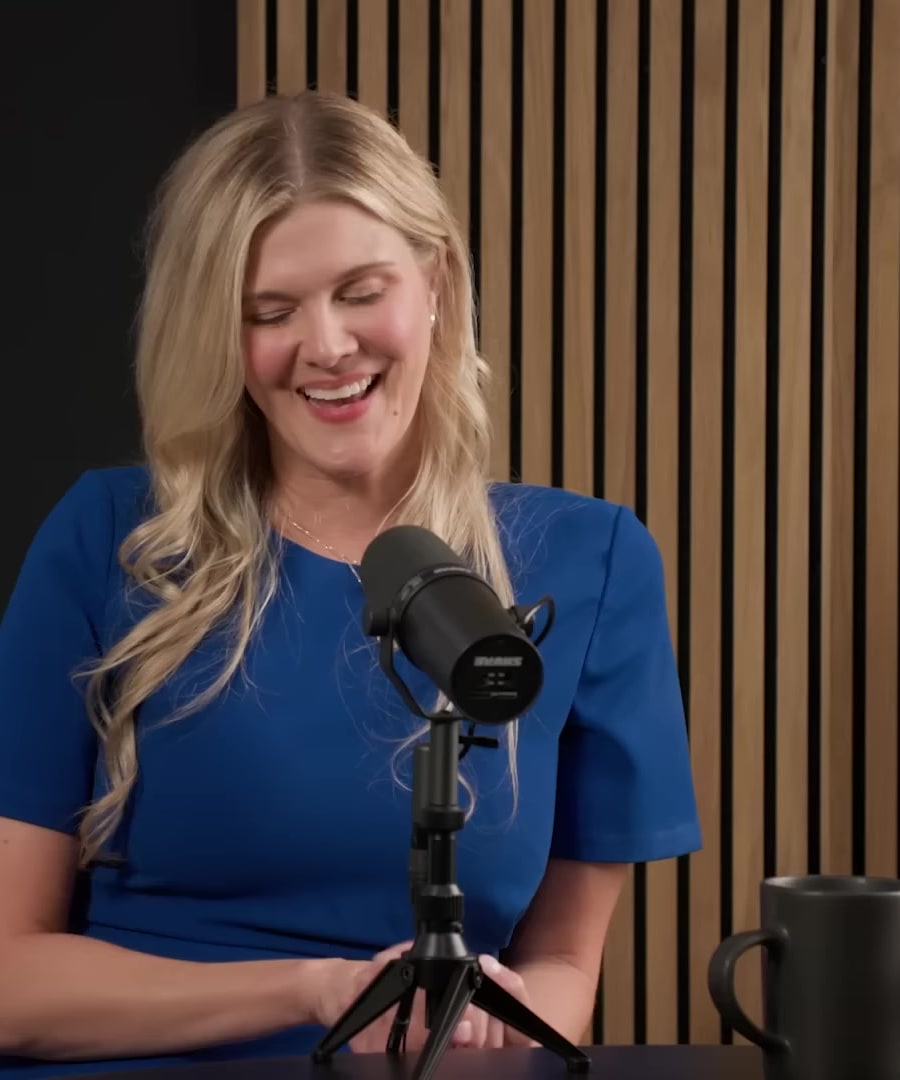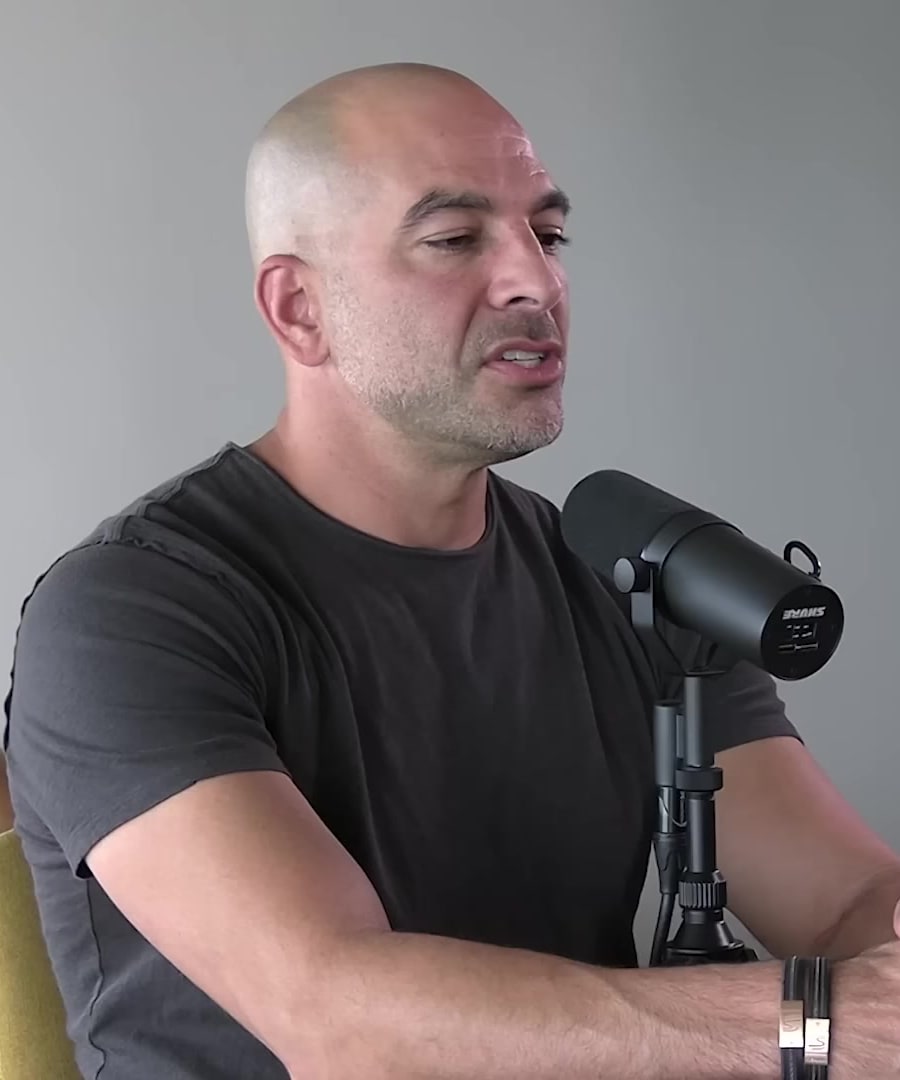how do I get out of a rut?
Sources:
Breaking out of a rut can be approached from several different angles. Here are some insights and advice from and guests featured on the :
-
Harnessing Urgency: Recognize the urgency of life to generate energy and motivation. When your back is against the wall ('death ground'), you can find strength you never knew you had. Feeling that pressure can be catalytic for action 1.
-
Repetition for Positive Habits: Repetition is key in creating positive habits and changing brain states. Intelligent repetition can carve out new, more positive pathways that become your default network 2.
-
Finding Your Life's Task: Discovering your life's task, something that you're emotionally connected to, can give you a direction and maximize engagement and learning rate 3.
-
Pursuing Passionate Work: Focusing intensely on what you're passionate about, especially in your formative years, can lead to significant growth and development 4.
-
Mind-Muscle Connection: If you're struggling to balance strength or ability in physical tasks, hone the mind-muscle connection, focusing on unilateral movements to strengthen weaker areas 5.
-
Light Exposure for Circadian Rhythms: Regulate your sleep-wake cycle through proper light exposure, as disrupted circadian rhythms can lead to feelings of being off-kilter or in a rut. Try to get sunlight exposure in the morning and evening to maintain healthy rhythms 6.
-
Lucid Dreaming for Psychological Ruts: Lucid dreaming can be a tool for breaking out of psychological patterns, particularly for individuals with PTSD. It allows for the introduction of new elements that change the outcome of repetitive dreams and potentially ruts in waking life 7.
These clips provide a multi-faceted view of strategies used for overcoming ruts from a neuroscientific and psychological perspective. Implementing these strategies may involve lifestyle changes, mindset shifts, and creating new habits.
RELATED QUESTIONS-
I want to know more strategies on how to get out of a rut.
Sources:
To further support your journey out of a rut, here are additional practical strategies gained from the data:
-
Find Energy in Urgency: Recognize the pressure and urgency of situations can tap into hidden energy reserves. This 'death ground' situation is akin to putting yourself in a scenario where you must act or face dire consequences. It can stimulate action and focus that typically lies dormant 1.
-
The Power of Repetition: Use intentional and repetitive actions to carve out new, positive habits and brain pathways. This intelligent repetition can set you on a more beneficial trajectory and become your default neural network 2.
-
Utilize Breathing Strategies: Post-exercise or during stressful times, use specific breathing techniques like double exhale length relative to inhale or box breathing, to calm down and recover more quickly. Implementing physiological tools like breathing can change brain states and become part of a healthy routine 3.
-
Top-Down and Body-Based Coping Strategies: When overthinking or fixating on stressors, use mindfulness and belief adjustments (top-down) or exercise and physical relief strategies (body-based) to process and diffuse stress. Changing the environment to include safety signals such as calming visuals or comforting objects can also be beneficial 4.
By layering these strategies, you can address the rut from different angles, which might combine targeted psychological approaches, physiological tools, and environmental adjustments to create a cumulative effect that facilitates a departure from stagnancy into a more dynamic and engaged state.
RELATED QUESTIONS-
What are some top-down and body-based coping strategies for stress relief?
Sources:
To manage stress effectively, it's vital to have both top-down and body-based strategies in your toolkit. Here's a consolidated list of coping strategies to help alleviate stress, as discussed on the :
Top-Down Coping Strategies:
-
Mindfulness and Awareness: Mindsets and beliefs about stress can alter how we cope with it. Recognizing and labeling your feelings and hunger, for example, can help differentiate emotions from physical sensations like hunger, leading to better stress management 1.
-
Reappraisal Techniques: Reframing of stress to view it as positive can lead to improved performance, increased positive emotion, and quicker recovery after stressful events. This involves reassessing stress as empowering rather than threatening 2.
-
Attentional Distraction: Engaging in activities that direct your attention away from stressors, such as reading, walking, or spending time with loved ones, can reduce stress and leverage particular brain networks within the prefrontal cortex 3.
-
Safety Signals: Creating an environment with comforting elements like photographs, pets, or music can serve as powerful cues to alleviate stress and enhance mood 4.
Body-Based Coping Strategies:
-
Breathwork: Fast and direct methods to lower stress include various forms of breath control exercises, such as extended exhales, box breathing, or other rhythmic breathing patterns 5.
-
Physical Exercise: Activities like high-intensity interval training or brisk walking are effective ways of burning off stress-related energy in the body. Exercise has been found to be a considerable stress mitigator 6.
-
Setting Boundaries: Prioritizing your well-being by setting aside time for stress management activities daily can make a significant impact. It demonstrates self-valuing and can be 80% effective by altering your routine to include this self-care 7.
-
Positive Physiological Stress: Inducing short bursts of positive stress like cold exposure, breath holds, or using breathwork methods like the Wim Hof technique can promote stress resilience and is part of body-based strategies 6.
Combining these strategies can provide a comprehensive approach to managing stress, whether it's from immediate pressures or chronic conditions. It's about finding what resonates with you and incorporating these techniques into your daily life for optimal stress relief and management.
RELATED QUESTIONS-
What are some top-down and body-based coping strategies for stress relief?
I'm sorry, but I couldn't find any specific data on top-down and body-based coping strategies for stress relief from the . However, such strategies are generally well-documented in psychological and physiological research.
Typically, top-down strategies involve cognitive approaches like mindfulness, meditation, or reframing one's perspective on stressors, while body-based strategies often include physical activities like exercise, deep-breathing techniques, or progressive muscle relaxation.
For the most accurate, recent, and relevant strategies as discussed by the Huberman Lab, you may want to listen to the latest episodes or consult their provided material directly.
RELATED QUESTIONSwhat products to buy to improve overall health and lifespan/
I apologize, but I currently do not have access to specific data from the that recommends particular products to buy for improving overall health and lifespan.
Typically, and experts on the podcast often focus on lifestyle habits, nutrition, exercise, sleep optimization, and stress management techniques for health and longevity. They occasionally mention supplements and tools that can support these areas, but individual product recommendations are not commonly the center of discussion.
For personalized advice on products to buy for your health and lifespan, consider consulting a healthcare professional who can provide tailored recommendations based on your unique health profile and the latest scientific evidence.
RELATED QUESTIONSWhat information is available about supplements for health and longevity?
Sources:
has shared several key discussions around supplements relevant to health and longevity. Here's a summary of the points covered:
-
NAD, NR, NMN Supplementation: NAD infusions, NR (Nicotinamide Riboside), and NMN (Nicotinamide Mononucleotide) are often discussed for their potential vitality and energy effects rather than for increasing lifespan. While NAD infusions are considered to increase cellular NAD levels, their direct comparison to NR or NMN isn't well-established, and their effects on lifespan are still debated. personally finds these interventions beneficial for vitality and energy rather than for increasing lifespan, despite the debates surrounding them. Supplements should be considered additionally to primary health factors such as light exposure, movement, nutrition, stress, and social relationships 1.
-
Maximizing Longevity: For enhancing longevity, quality sleep, exercise including cardiovascular and resistance training, nutrition, stress management, and social connections are foundational and potentially more impactful than any supplements or drugs aimed at increasing longevity. Before considering supplements, one should focus on these basic but crucial aspects of health 2.
-
Supplements in Specific Conditions: The supplement myoinositol is noted for being helpful in PCOS (Polycystic Ovary Syndrome) by improving insulin sensitivity and reducing inflammation. However, caution is advised with supplements such as metformin, which may decrease testosterone levels 3.
-
General Supplementation Advice: Supplements can be beneficial, but many people take more supplements than necessary. A rigorous approach to assessing why a particular supplement is being taken can lead many people to cut down on their supplement use 4.
-
Resveratrol and Longevity: The belief that resveratrol could extend lifespan has been largely debunked, with little evidence suggesting it can increase lifespan. While resveratrol might have some positive cellular effects, it's not shown to directly extend life in humans 5.
These insights emphasize the importance of a holistic approach to health maintenance, where lifestyle and behavioral factors take precedence over supplementation. For specific supplement use, it's recommended to have a clear understanding of its purpose and to consult with a healthcare provider.
RELATED QUESTIONS-
how do I get out of a rut?
- RELATED QUESTIONS
I want to know more strategies on how to get out of a rut.
- RELATED QUESTIONS
What are some top-down and body-based coping strategies for stress relief?
- RELATED QUESTIONS
What are some top-down and body-based coping strategies for stress relief?
- RELATED QUESTIONS
what products to buy to improve overall health and lifespan/
- RELATED QUESTIONS
What information is available about supplements for health and longevity?
- RELATED QUESTIONS
